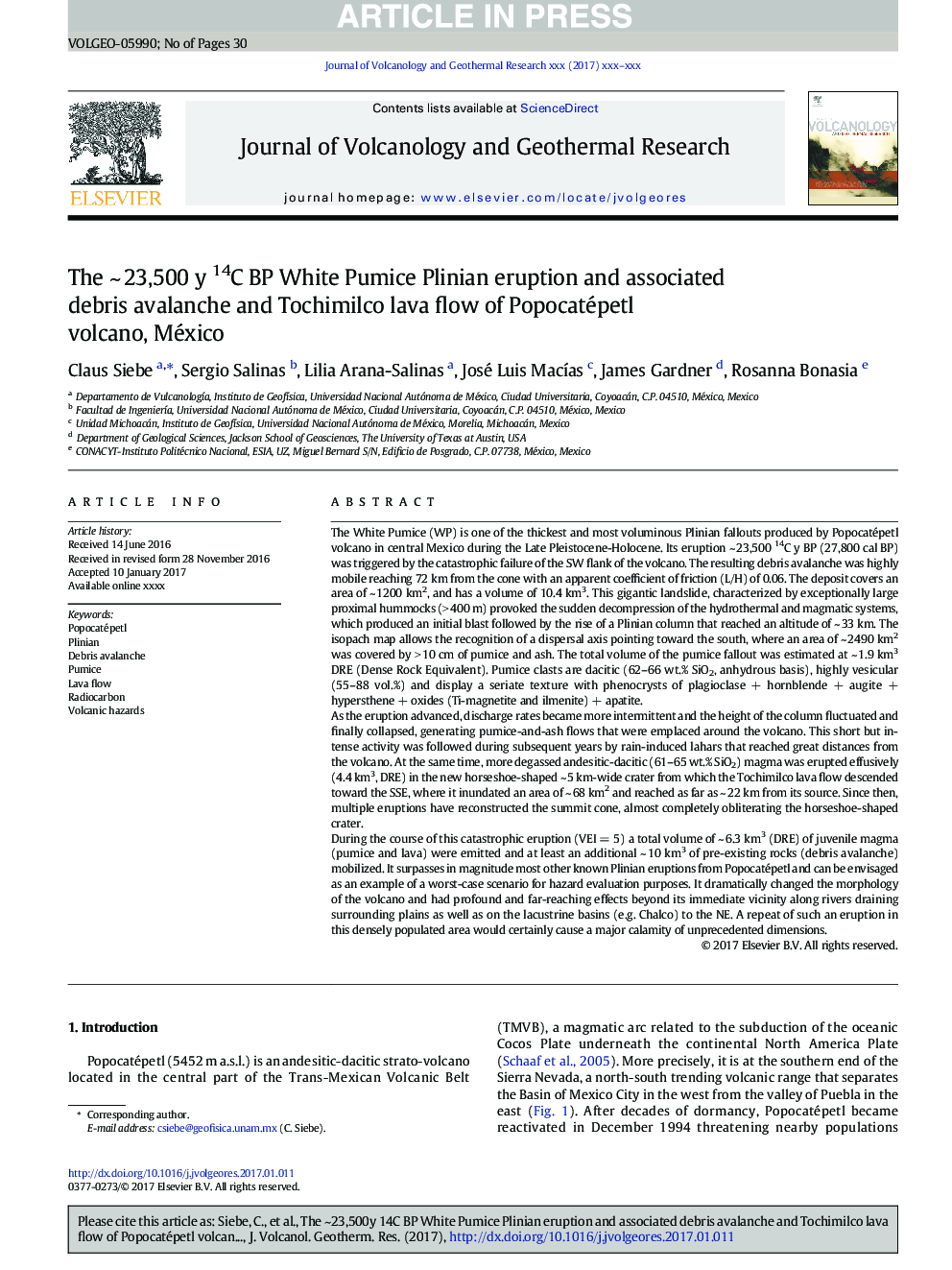| Article ID | Journal | Published Year | Pages | File Type |
|---|---|---|---|---|
| 5783895 | Journal of Volcanology and Geothermal Research | 2017 | 30 Pages |
Abstract
During the course of this catastrophic eruption (VEIÂ =Â 5) a total volume of ~Â 6.3Â km3 (DRE) of juvenile magma (pumice and lava) were emitted and at least an additional ~Â 10Â km3 of pre-existing rocks (debris avalanche) mobilized. It surpasses in magnitude most other known Plinian eruptions from Popocatépetl and can be envisaged as an example of a worst-case scenario for hazard evaluation purposes. It dramatically changed the morphology of the volcano and had profound and far-reaching effects beyond its immediate vicinity along rivers draining surrounding plains as well as on the lacustrine basins (e.g. Chalco) to the NE. A repeat of such an eruption in this densely populated area would certainly cause a major calamity of unprecedented dimensions.
Related Topics
Physical Sciences and Engineering
Earth and Planetary Sciences
Geochemistry and Petrology
Authors
Claus Siebe, Sergio Salinas, Lilia Arana-Salinas, José Luis MacÃas, James Gardner, Rosanna Bonasia,
